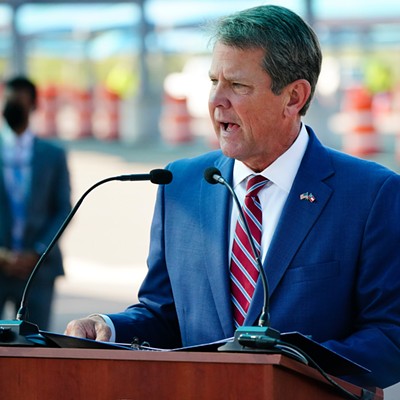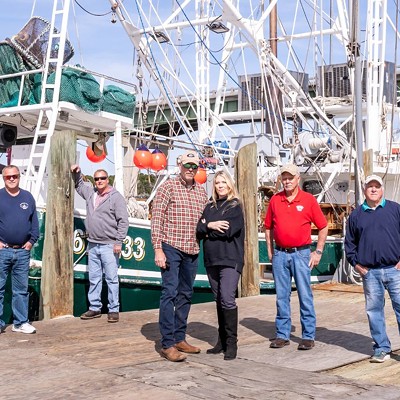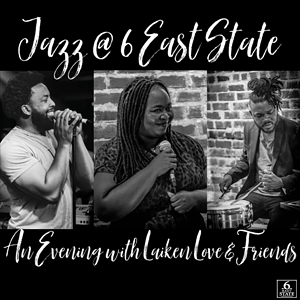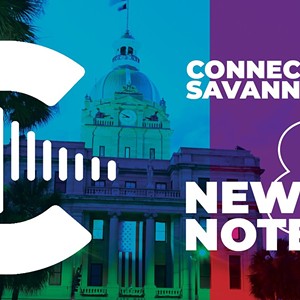Faith outside the box
[
{
"name": "Air - MedRect Combo - Inline Content 1",
"component": "14680855",
"insertPoint": "7",
"requiredCountToDisplay": "5",
"parentWrapperClass": "fdn-ads-inline-content-block"
},{
"name": "Air - MedRect Combo - Inline Content 2",
"component": "14680856",
"insertPoint": "15",
"requiredCountToDisplay": "9",
"parentWrapperClass": "fdn-ads-inline-content-block"
},{
"name": "Air - SVP - Leaderboard - Inline Content - 2",
"component": "16852291",
"insertPoint": "10",
"requiredCountToDisplay": "10",
"parentWrapperClass": "fdn-ads-inline-content-block"
},{
"name": "Air - SVP - Leaderboard - Inline Content - 3",
"component": "16852292",
"insertPoint": "20",
"requiredCountToDisplay": "18",
"parentWrapperClass": "fdn-ads-inline-content-block"
},{
"name": "Air - SVP - Leaderboard - Inline Content - 1",
"component": "16852290",
"insertPoint": "25",
"requiredCountToDisplay": "22",
"parentWrapperClass": "fdn-ads-inline-content-block"
}
]
The media loves a stereotype, especially when religion is involved. But for every stereotype that proves accurate, theres a real live human being who doesnt fit neatly into any one category.
It might be the African-American Democrat in Savannah who voted proudly for John Kerry -- and just as proudly against gay marriage.
It might be the anti-abortion activist that local liberals love to hate, Pro Life Anderson -- who marched side by side with local civil rights leaders back in the day.
Or it might be this weeks cover model, Amanda Cormeny, who works as a tattoo artist at Smiling Buddha on White Bluff Road.
A lot of times people are surprised to find out Im a Christian, she tells Connect Savannah during a break from work. People are especially surprised at the amount of art I have on my body.
Cormeny attends a church in Bluffton, S.C., that she says turns no one away and welcomes people from all walks of life. But what they speak about is very traditional Christianity, she says.
To Cormeny, tattooing is an art form that belongs to no single group or lifestyle. A lot of people think if you have a tattoo you must be a biker and ride a Harley. But thats a real old-school viewpoint.
Cormeny says she supposes some religious people would view her tattoos as vanity, an unnecessary addition to the body God gave her.
But she respectfully disagrees.
When I get to church, I guarantee you every woman there spent an hour in front of the mirror getting ready, she says. Its no different.
The rise of Christianity in American life is undeniable. But as the dust settles from the recent election, we see that it might not be so easy to predict what outward expression that Christianity will eventually take.
And we see that conservatives and liberals alike might be surprised at the company they now keep on matters of church and state.
Once government comes in the room, God goes out the door, says Angela McCurdy, director of development for the Old Savannah City Mission. We believe in total separation of church and state. Its a contradiction if your organization is called faith-based but youre not allowed to use the word God.
The Old Savannah City Mission is a local nonprofit that helps the poor, the needy and those with substance abuse problems. This past Thanksgiving, the City Mission fed hundreds in Forsyth Park. This past Saturday, they fed hundreds of low-income Latino workers at a trailer park in West Chatham County.
In addition, the City Mission provides free lunch to over a hundred low income inner-city children in Savannah each and every week.
But contrary to the stereotype of evangelists feeding greedily at George W. Bushs faith-based trough, they do all this with no government funds whatsoever.
Entrants to its Urban Treatment Institute -- known as students -- also cannot receive any government assistance during the two-year recovery program. If a student receives a paycheck for work done while in the program, he must tithe ten percent back to the City Mission.
That is not optional. This is God's house, explains McCurdy.
If the student owes child support or other debts, hes expected to pay them back as soon as possible.
We believe that in order for a person to regain dignity and be a person of good character, they must make right what was done wrong, McCurdy says. We dont just hit someone on the head with a Bible and push them out of the door. After two years we want to put a whole person back on the streets.
So despite the stereotype of Christians wanting to run the government, Old Savannah City Mission wants to stay as far out of politics as possible -- and vice versa.
We don't believe taxpayers should have to pay for someone getting off drugs and alcohol. Thats one of the concepts thats destroying our country today, McCurdy says.
While he also helps the poor and the needy, the Rev. Micheal Elliott is executive director of a very different kind of local faith-based organization, the Union Mission -- which does indeed work with government agencies and happily accepts government funding.
Elliott is no ones fundamentalist. In fact, we suspect he may have been called a liberal once or twice in his life. But he certainly isnt bemoaning the current status of American church/state separation.
Like a lot of people, when I first heard the phrase compassionate conservatism, I thought it was just a bunch of mumbo jumbo, he says. But you know, Bush has put a lot money behind it.
Elliott says that while the results so far are uneven, overall hes pleased with Bushs agenda on social issues.
Bush is the first president since FDR to propose a mandate specifically addressing a social issue, Elliott says, referring to Bushs pledge to solve chronic homelessness in 10 years.
Despite the stereotype of Bush as a backward-looking archconservative, Elliott says the presidents outlook on social issues is actually somewhat progressive.
Its almost the flip side of what Clinton did. Clinton grabbed onto things that were traditionally Republican, like welfare reform and balanced budgets. It looks like Bush II has taken a page from Clinton's playbook, he says. For example, on the AIDS issue, Bush essentially embraced the Clinton plan, and then expanded it.
St. Pauls Episcopal Church on 34th Street is another local Christian organization that goes against type.
The sanctuary, built in 1907 and based on a medieval design, is imposing in its austere grandeur. Each Sunday at 10 a.m., St. Pauls conducts one of the few local High Anglican masses, an awe-inspiring liturgy complete with incense, chanting and a choir backed by a pipe organ.
But St. Pauls is also one of the most activist churches in Savannah, with an extensive inner-city outreach program that includes renovating old buildings to provide low-cost housing.
In the wake of the controversy over the recent ordination of a homosexual Episcopal bishop in New Hampshire, the deeply traditional St. Pauls has welcomed many gay Episcopalians who decided to leave other local congregations that they say are suddenly not so welcoming anymore.
While the ready-made media narrative would say that St. Pauls has suffered for its open-mindedness, the opposite is true: Theres actually been a net gain in the number of people attending since the controversy.
St. Pauls rector, the Rev. William Willoughby III, says, Christians are called to be present and be compassionate -- that means accepting people for where they are in life, and walking with them to whatever place God wants them to be. We've been given this thing called the body of Christ for a reason.
Willoughby says hes learned over the years that the hard way is often the most rewarding in the long run.
Ive become convinced that a large part of how we're formed is through crisis and adversity, he says. When something makes us actually sit up and pay attention, it also forces us to decide whats important, and how we would like to be known.
For Willoughby, bucking the tide of popular opinion while respecting old traditions is no contradiction at all.
People have tried to pigeonhole me for years. I work at defying stereotypes both personally and corporately, he says. Id like to see us forget about our differences and instead ask, what do we have in common? What common cause can we make?
While stereotypes on both sides are easily debunked once you get the hang of it, a more serious question remains:
How will the rising tide of Christian activism in American politics express itself: With a focus on personal issues such as sexuality, marriage and abortion? Or with a drive to put faith into action by helping the less-fortunate and the oppressed?
One local theologian says not only is such a divide unnecessary, its also not very Christian.
Looking to the Bible, youve got the Ten Commandments on one side and the Beatitudes on the other. Both areas are dealt with. There really isnt supposed to be a break between the two, says Paul Thigpen, the Savannah-based editor of Catholic Answer and author of 34 books on theology and Christianity.
But traditionally, Christians in this country focus more on the individual, in that they see that as the key to the social area.
Willoughby says, The Puritans came up with the idea that if you were successful, God was smiling on you. But Catholic theology has always grappled with this. Generally, Roman Catholic activist circles will point to the Beatitudes. The most consistent thing attesting to that in these parts would be the annual protest of the School of the Americas at Ft. Benning.
Thigpen says its important to understand that for many devout Christians, personal issues are not easily separated from public ones.
With certain issues -- especially abortion and euthanasia, where youre talking about the right to life -- the reasoning is that since with these issues theres another human being involved, it's therefore a social issue. And I would agree that theyre social issues.
On the evangelical side, McCurdy of the Old Savannah City Mission concurs.
Your faith has to be what you live, not just what you do. It can't be different. If it is different you will eventually fall flat on your face, McCurdy says. When I came to know the Lord, my life changed. When I learned that the private and the public are one and the same, that made all the difference in how I operated.
Willoughby says that a nations level of prosperity sometimes dictates the form its activism will take. When basic needs of sustenance, shelter and medical care are no longer so pressing, society tends to focus on more personal -- some would say private -- issues.
Thats one of the things the Anglican churches in Africa are complaining about during this whole debate on human sexuality, he says. Theyre telling us, We don't have the luxury of worrying about things like this.
While current events are causing some divides, theyre also bridging some age-old rifts as well.
Back in the '70s, when the pro-life movement got rolling, you saw Catholics and Protestants side by side for the first time, meeting in the protest line outside abortion clinics, Thigpen says.
That experience taught both camps that though they were divided on some issues, abortion was so important they had to stay united.
The Catholic/Protestant alliance has been swirling slowly out there for years, he says, and then an event like the Bush/Kerry election becomes a flashpoint, where a lot of people thinking the same way converge.
Many traditional Catholics, like Southern Protestants before them, are now undergoing a realignment toward the Republican party.
In large northern cities, Catholics were always a large solid vote for Democrats, he says. In the early years, Democrats were the party of immigrants and the champion of the working man. Catholics fit both those categories.
Thigpen says Catholics who voted for Bush are more traditional Catholics, ones that go to Mass every Sunday and maybe one other day of the week, as opposed to what he calls cultural Catholics.
Today, what you've got is a Catholic Church that at the popular level is deeply divided, Thigpen says.
He calls the current political age divide among American Catholics remarkable.
A lot of younger Catholics are now saying, The Democratic party has left me, whether on abortion or on homosexuality. The older Catholics, though, are more set in their ways.
From a historical viewpoint, conservatives and liberals alike might be surprised to discover that evangelical Christianity in the U.S. has accomplished many major reforms that can only be called liberal in nature.
In the early 19th Century, Christian activists, largely from the evangelical churches, were very effective in their efforts to reform, says Thigpen.
Chief among those efforts, of course, was abolition. Then you had things involving labor, such as reforming child labor laws and giving workers the Sabbath off.
Thigpen says that period, historically speaking, was perhaps Christianitys high point in American life.
There came a great positive attitude, an optimism about what the church could achieve in the world, he says.
Then came the Civil War. As with most civil wars, Thigpen says, ours destroyed idealism.
Society was divided, churches were divided. There was rapid industrialization. Immigration became overwhelming, he says. A new pessimism replaced the old optimism.
Thigpen says thats when a great split among American Christians came to pass, with fundamentalists on one side and more liberal Christians on the other.
This split along the lines of theological liberals and conservatives holds in place until the 1970s, when under the leadership of Jerry Falwell and others, you get this renewal of interest among evangelicals in the social realm, he says.
Willoughby, a historian in his own right, concurs.
Evangelical churches in this country historically adopted a hands-off attitude towards politics. But that began to change about 25 years ago.
At about that time, Elliott agrees, an influx of social conservatives began to dominate church discourse in the U.S.
What happened was the liberals became overwhelmed by the conservatives, and then became moderates, Elliott says. The moderates basically abandoned their liberal roots.
But, Willoughby says, its important to remember that for many American evangelicals, this entry into politics wasnt so much a new paradigm as it was the rediscovery of an old paradigm.
It very much harkens back to the city on the hill the Puritans envisioned when they first came here, he says.
While there is much unity nowadays among U.S. churches, there remains a major divide in American religious life. And it involves a very popular religious notion with very little Scripture to back it up: The Rapture, or End Times.
First popularized in the mid-1800s by a renegade Irish priest named John Nelson Darby, the End Times concept says that before Christs second coming, true believers will be literally snatched up into heaven in a secret Rapture.
Meanwhile, the infidels among us must remain on earth to partake of seven years of misery under the Antichrist before Jesuss final victorious return.
End Times theology has spread like wildfire throughout evangelical American churches, and spawned an entire pop-culture industry worth billions of dollars. The Left Behind series of novels by Jerry Jenkins and Tim LaHaye is so popular it sponsors a NASCAR team.
However, the Rapture is soundly and categorically rejected by a vast majority of Christian churches worldwide, including Roman Catholics, Episcopalians, United Methodists, Lutherans, and Eastern Orthodox.
Though now Catholic, Thigpen was raised in an End Times church, the Pentecostal. He addresses the subject head-on in his book, The Rapture Trap.
He says fundamentalists who pride themselves on literal interpretations of the Bible might be surprised to learn that the Rapture is not directly referenced anywhere in Scripture.
How could such an idea take hold of people who sincerely profess to be Bible believing -- and who often condemn those who disagree with them for denying the plain sense of Scripture? Thigpen writes.
Willoughby says that while millennialism is as old as the year 1000, the graphic representation of a Rapture is mainly an American phenomenon.
The movement really got its impetus during the Revivalist period in the late 19th and early 20th Centuries, Willoughby says. That kind of let the genie out of the bottle. Prophetic utterances do appeal to certain groups.
But while his Episcopal church, among most others, rejects End Times belief, Willoughby himself rejects the idea that a belief in the Rapture stifles good works by those who might think theyre already saved and therefore dont need to bother.
The beauty of the whole thing is that nobody really knows who's one of the chosen, he says. It sort of works the same way as the Protestant work ethic --how do you prove that you're one of the elect? That question runs deep in our history.
Thigpen says apocalyptic scenarios are always more popular during times of war and turmoil, and this post-9/11 period is no different.
Since the 70s and the rise of the Moral Majority, many folks who were Rapture believers began taking on some responsibility to slow the decay they saw around them, Thigpen says. But overall my guess is that a lot of folks are going deeply back into pessimism.
But Angela McCurdy of Old Savannah City Mission is no ones pessimist.
Savannah is a very special place, she says. People here, when you grab their heart, they're very loyal. People in Savannah are wonderful, beautiful, loyal people.
This is the last in a series on faith, values and politics.
It might be the African-American Democrat in Savannah who voted proudly for John Kerry -- and just as proudly against gay marriage.
It might be the anti-abortion activist that local liberals love to hate, Pro Life Anderson -- who marched side by side with local civil rights leaders back in the day.
Or it might be this weeks cover model, Amanda Cormeny, who works as a tattoo artist at Smiling Buddha on White Bluff Road.
A lot of times people are surprised to find out Im a Christian, she tells Connect Savannah during a break from work. People are especially surprised at the amount of art I have on my body.
Cormeny attends a church in Bluffton, S.C., that she says turns no one away and welcomes people from all walks of life. But what they speak about is very traditional Christianity, she says.
To Cormeny, tattooing is an art form that belongs to no single group or lifestyle. A lot of people think if you have a tattoo you must be a biker and ride a Harley. But thats a real old-school viewpoint.
Cormeny says she supposes some religious people would view her tattoos as vanity, an unnecessary addition to the body God gave her.
But she respectfully disagrees.
When I get to church, I guarantee you every woman there spent an hour in front of the mirror getting ready, she says. Its no different.
The rise of Christianity in American life is undeniable. But as the dust settles from the recent election, we see that it might not be so easy to predict what outward expression that Christianity will eventually take.
And we see that conservatives and liberals alike might be surprised at the company they now keep on matters of church and state.
Once government comes in the room, God goes out the door, says Angela McCurdy, director of development for the Old Savannah City Mission. We believe in total separation of church and state. Its a contradiction if your organization is called faith-based but youre not allowed to use the word God.
The Old Savannah City Mission is a local nonprofit that helps the poor, the needy and those with substance abuse problems. This past Thanksgiving, the City Mission fed hundreds in Forsyth Park. This past Saturday, they fed hundreds of low-income Latino workers at a trailer park in West Chatham County.
In addition, the City Mission provides free lunch to over a hundred low income inner-city children in Savannah each and every week.
But contrary to the stereotype of evangelists feeding greedily at George W. Bushs faith-based trough, they do all this with no government funds whatsoever.
Entrants to its Urban Treatment Institute -- known as students -- also cannot receive any government assistance during the two-year recovery program. If a student receives a paycheck for work done while in the program, he must tithe ten percent back to the City Mission.
That is not optional. This is God's house, explains McCurdy.
If the student owes child support or other debts, hes expected to pay them back as soon as possible.
We believe that in order for a person to regain dignity and be a person of good character, they must make right what was done wrong, McCurdy says. We dont just hit someone on the head with a Bible and push them out of the door. After two years we want to put a whole person back on the streets.
So despite the stereotype of Christians wanting to run the government, Old Savannah City Mission wants to stay as far out of politics as possible -- and vice versa.
We don't believe taxpayers should have to pay for someone getting off drugs and alcohol. Thats one of the concepts thats destroying our country today, McCurdy says.
While he also helps the poor and the needy, the Rev. Micheal Elliott is executive director of a very different kind of local faith-based organization, the Union Mission -- which does indeed work with government agencies and happily accepts government funding.
Elliott is no ones fundamentalist. In fact, we suspect he may have been called a liberal once or twice in his life. But he certainly isnt bemoaning the current status of American church/state separation.
Like a lot of people, when I first heard the phrase compassionate conservatism, I thought it was just a bunch of mumbo jumbo, he says. But you know, Bush has put a lot money behind it.
Elliott says that while the results so far are uneven, overall hes pleased with Bushs agenda on social issues.
Bush is the first president since FDR to propose a mandate specifically addressing a social issue, Elliott says, referring to Bushs pledge to solve chronic homelessness in 10 years.
Despite the stereotype of Bush as a backward-looking archconservative, Elliott says the presidents outlook on social issues is actually somewhat progressive.
Its almost the flip side of what Clinton did. Clinton grabbed onto things that were traditionally Republican, like welfare reform and balanced budgets. It looks like Bush II has taken a page from Clinton's playbook, he says. For example, on the AIDS issue, Bush essentially embraced the Clinton plan, and then expanded it.
St. Pauls Episcopal Church on 34th Street is another local Christian organization that goes against type.
The sanctuary, built in 1907 and based on a medieval design, is imposing in its austere grandeur. Each Sunday at 10 a.m., St. Pauls conducts one of the few local High Anglican masses, an awe-inspiring liturgy complete with incense, chanting and a choir backed by a pipe organ.
But St. Pauls is also one of the most activist churches in Savannah, with an extensive inner-city outreach program that includes renovating old buildings to provide low-cost housing.
In the wake of the controversy over the recent ordination of a homosexual Episcopal bishop in New Hampshire, the deeply traditional St. Pauls has welcomed many gay Episcopalians who decided to leave other local congregations that they say are suddenly not so welcoming anymore.
While the ready-made media narrative would say that St. Pauls has suffered for its open-mindedness, the opposite is true: Theres actually been a net gain in the number of people attending since the controversy.
St. Pauls rector, the Rev. William Willoughby III, says, Christians are called to be present and be compassionate -- that means accepting people for where they are in life, and walking with them to whatever place God wants them to be. We've been given this thing called the body of Christ for a reason.
Willoughby says hes learned over the years that the hard way is often the most rewarding in the long run.
Ive become convinced that a large part of how we're formed is through crisis and adversity, he says. When something makes us actually sit up and pay attention, it also forces us to decide whats important, and how we would like to be known.
For Willoughby, bucking the tide of popular opinion while respecting old traditions is no contradiction at all.
People have tried to pigeonhole me for years. I work at defying stereotypes both personally and corporately, he says. Id like to see us forget about our differences and instead ask, what do we have in common? What common cause can we make?
While stereotypes on both sides are easily debunked once you get the hang of it, a more serious question remains:
How will the rising tide of Christian activism in American politics express itself: With a focus on personal issues such as sexuality, marriage and abortion? Or with a drive to put faith into action by helping the less-fortunate and the oppressed?
One local theologian says not only is such a divide unnecessary, its also not very Christian.
Looking to the Bible, youve got the Ten Commandments on one side and the Beatitudes on the other. Both areas are dealt with. There really isnt supposed to be a break between the two, says Paul Thigpen, the Savannah-based editor of Catholic Answer and author of 34 books on theology and Christianity.
But traditionally, Christians in this country focus more on the individual, in that they see that as the key to the social area.
Willoughby says, The Puritans came up with the idea that if you were successful, God was smiling on you. But Catholic theology has always grappled with this. Generally, Roman Catholic activist circles will point to the Beatitudes. The most consistent thing attesting to that in these parts would be the annual protest of the School of the Americas at Ft. Benning.
Thigpen says its important to understand that for many devout Christians, personal issues are not easily separated from public ones.
With certain issues -- especially abortion and euthanasia, where youre talking about the right to life -- the reasoning is that since with these issues theres another human being involved, it's therefore a social issue. And I would agree that theyre social issues.
On the evangelical side, McCurdy of the Old Savannah City Mission concurs.
Your faith has to be what you live, not just what you do. It can't be different. If it is different you will eventually fall flat on your face, McCurdy says. When I came to know the Lord, my life changed. When I learned that the private and the public are one and the same, that made all the difference in how I operated.
Willoughby says that a nations level of prosperity sometimes dictates the form its activism will take. When basic needs of sustenance, shelter and medical care are no longer so pressing, society tends to focus on more personal -- some would say private -- issues.
Thats one of the things the Anglican churches in Africa are complaining about during this whole debate on human sexuality, he says. Theyre telling us, We don't have the luxury of worrying about things like this.
While current events are causing some divides, theyre also bridging some age-old rifts as well.
Back in the '70s, when the pro-life movement got rolling, you saw Catholics and Protestants side by side for the first time, meeting in the protest line outside abortion clinics, Thigpen says.
That experience taught both camps that though they were divided on some issues, abortion was so important they had to stay united.
The Catholic/Protestant alliance has been swirling slowly out there for years, he says, and then an event like the Bush/Kerry election becomes a flashpoint, where a lot of people thinking the same way converge.
Many traditional Catholics, like Southern Protestants before them, are now undergoing a realignment toward the Republican party.
In large northern cities, Catholics were always a large solid vote for Democrats, he says. In the early years, Democrats were the party of immigrants and the champion of the working man. Catholics fit both those categories.
Thigpen says Catholics who voted for Bush are more traditional Catholics, ones that go to Mass every Sunday and maybe one other day of the week, as opposed to what he calls cultural Catholics.
Today, what you've got is a Catholic Church that at the popular level is deeply divided, Thigpen says.
He calls the current political age divide among American Catholics remarkable.
A lot of younger Catholics are now saying, The Democratic party has left me, whether on abortion or on homosexuality. The older Catholics, though, are more set in their ways.
From a historical viewpoint, conservatives and liberals alike might be surprised to discover that evangelical Christianity in the U.S. has accomplished many major reforms that can only be called liberal in nature.
In the early 19th Century, Christian activists, largely from the evangelical churches, were very effective in their efforts to reform, says Thigpen.
Chief among those efforts, of course, was abolition. Then you had things involving labor, such as reforming child labor laws and giving workers the Sabbath off.
Thigpen says that period, historically speaking, was perhaps Christianitys high point in American life.
There came a great positive attitude, an optimism about what the church could achieve in the world, he says.
Then came the Civil War. As with most civil wars, Thigpen says, ours destroyed idealism.
Society was divided, churches were divided. There was rapid industrialization. Immigration became overwhelming, he says. A new pessimism replaced the old optimism.
Thigpen says thats when a great split among American Christians came to pass, with fundamentalists on one side and more liberal Christians on the other.
This split along the lines of theological liberals and conservatives holds in place until the 1970s, when under the leadership of Jerry Falwell and others, you get this renewal of interest among evangelicals in the social realm, he says.
Willoughby, a historian in his own right, concurs.
Evangelical churches in this country historically adopted a hands-off attitude towards politics. But that began to change about 25 years ago.
At about that time, Elliott agrees, an influx of social conservatives began to dominate church discourse in the U.S.
What happened was the liberals became overwhelmed by the conservatives, and then became moderates, Elliott says. The moderates basically abandoned their liberal roots.
But, Willoughby says, its important to remember that for many American evangelicals, this entry into politics wasnt so much a new paradigm as it was the rediscovery of an old paradigm.
It very much harkens back to the city on the hill the Puritans envisioned when they first came here, he says.
While there is much unity nowadays among U.S. churches, there remains a major divide in American religious life. And it involves a very popular religious notion with very little Scripture to back it up: The Rapture, or End Times.
First popularized in the mid-1800s by a renegade Irish priest named John Nelson Darby, the End Times concept says that before Christs second coming, true believers will be literally snatched up into heaven in a secret Rapture.
Meanwhile, the infidels among us must remain on earth to partake of seven years of misery under the Antichrist before Jesuss final victorious return.
End Times theology has spread like wildfire throughout evangelical American churches, and spawned an entire pop-culture industry worth billions of dollars. The Left Behind series of novels by Jerry Jenkins and Tim LaHaye is so popular it sponsors a NASCAR team.
However, the Rapture is soundly and categorically rejected by a vast majority of Christian churches worldwide, including Roman Catholics, Episcopalians, United Methodists, Lutherans, and Eastern Orthodox.
Though now Catholic, Thigpen was raised in an End Times church, the Pentecostal. He addresses the subject head-on in his book, The Rapture Trap.
He says fundamentalists who pride themselves on literal interpretations of the Bible might be surprised to learn that the Rapture is not directly referenced anywhere in Scripture.
How could such an idea take hold of people who sincerely profess to be Bible believing -- and who often condemn those who disagree with them for denying the plain sense of Scripture? Thigpen writes.
Willoughby says that while millennialism is as old as the year 1000, the graphic representation of a Rapture is mainly an American phenomenon.
The movement really got its impetus during the Revivalist period in the late 19th and early 20th Centuries, Willoughby says. That kind of let the genie out of the bottle. Prophetic utterances do appeal to certain groups.
But while his Episcopal church, among most others, rejects End Times belief, Willoughby himself rejects the idea that a belief in the Rapture stifles good works by those who might think theyre already saved and therefore dont need to bother.
The beauty of the whole thing is that nobody really knows who's one of the chosen, he says. It sort of works the same way as the Protestant work ethic --how do you prove that you're one of the elect? That question runs deep in our history.
Thigpen says apocalyptic scenarios are always more popular during times of war and turmoil, and this post-9/11 period is no different.
Since the 70s and the rise of the Moral Majority, many folks who were Rapture believers began taking on some responsibility to slow the decay they saw around them, Thigpen says. But overall my guess is that a lot of folks are going deeply back into pessimism.
But Angela McCurdy of Old Savannah City Mission is no ones pessimist.
Savannah is a very special place, she says. People here, when you grab their heart, they're very loyal. People in Savannah are wonderful, beautiful, loyal people.
This is the last in a series on faith, values and politics.




























